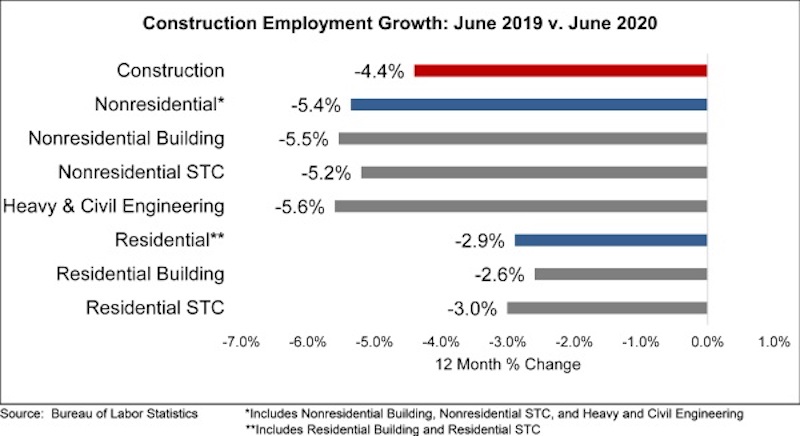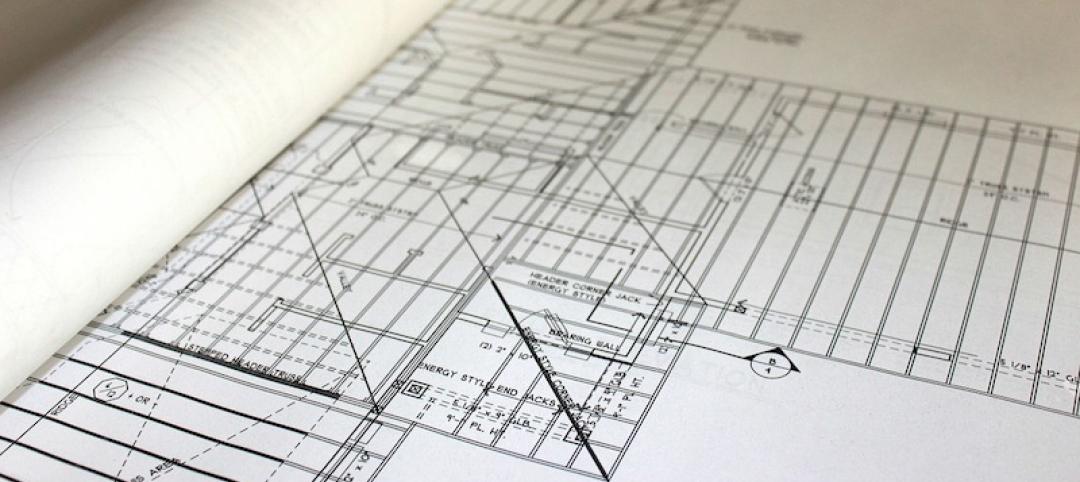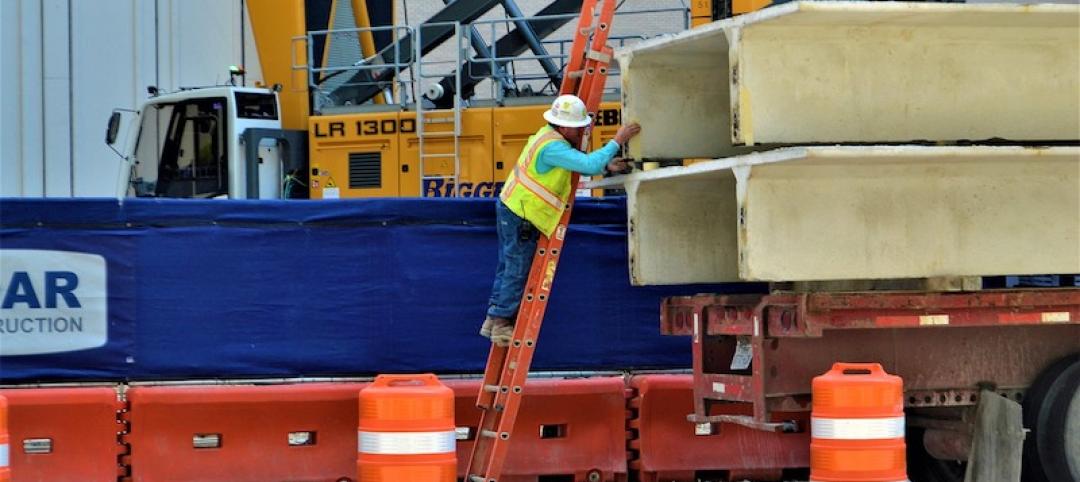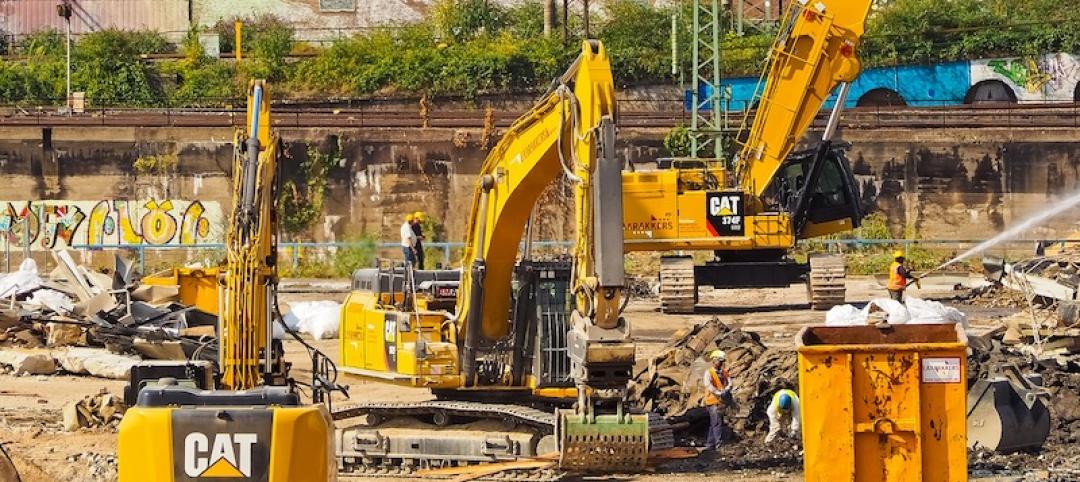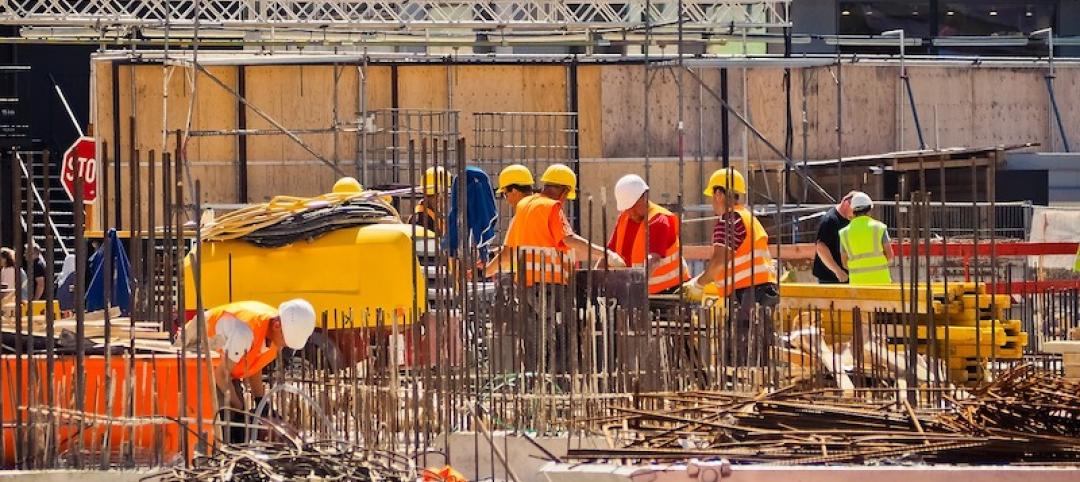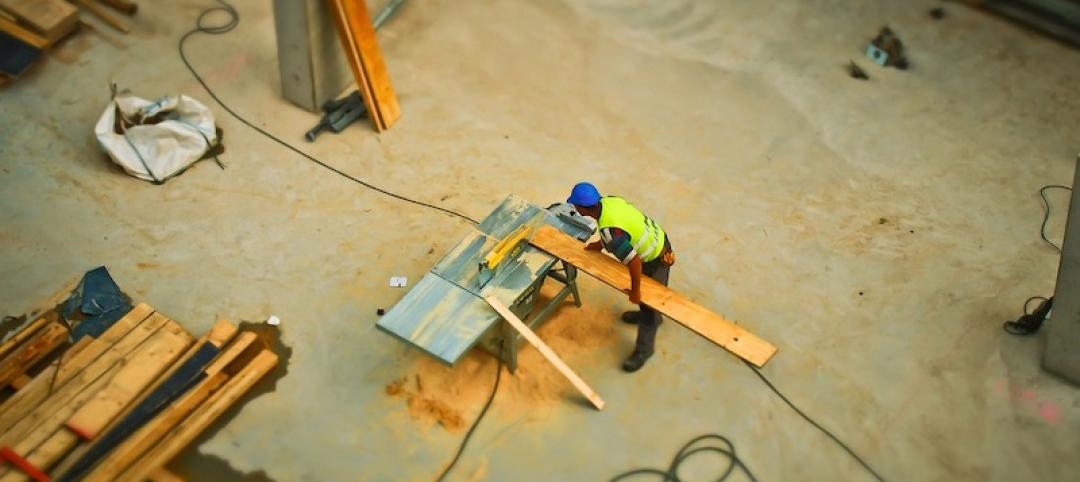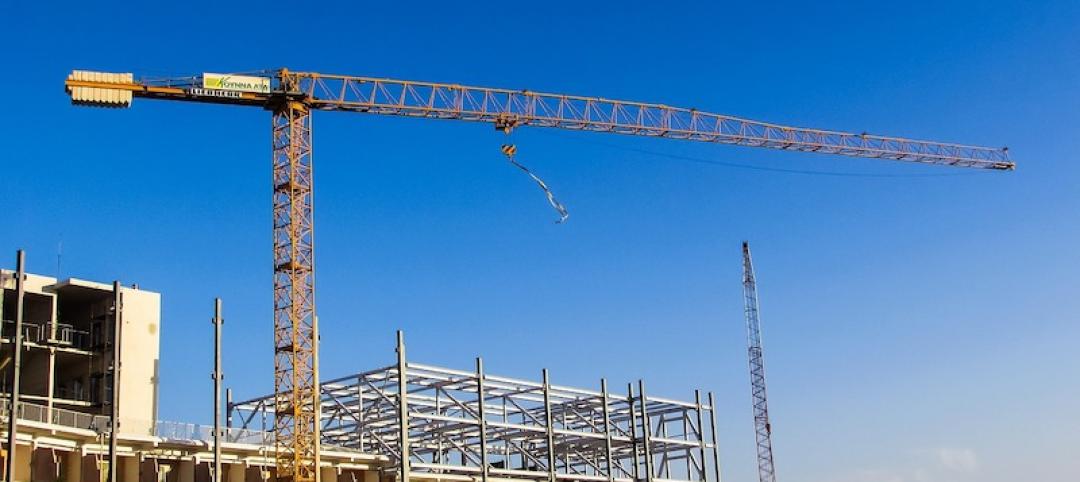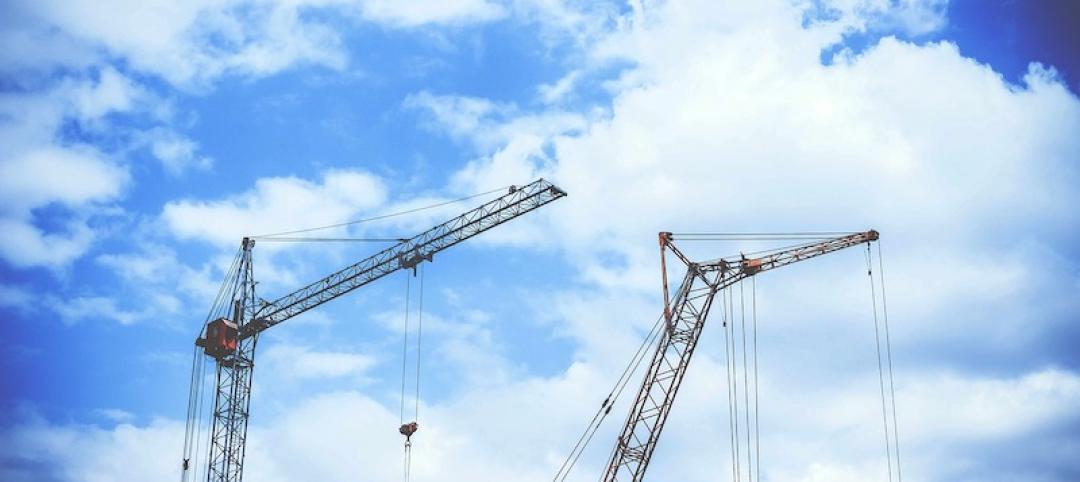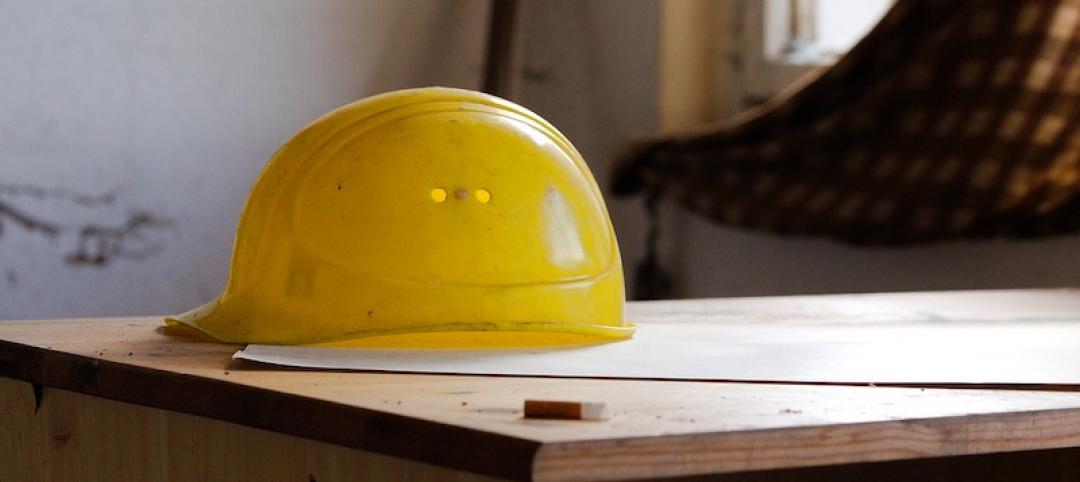The construction industry added 158,000 jobs on net in June, according to an Associated Builders and Contractors analysis of data released today by the U.S. Bureau of Labor Statistics. During the last two months, the industry has added 591,000 jobs, recovering 56% of the industrywide jobs lost since the start of the pandemic.
Nonresidential construction employment added 74,700 jobs on net in June. There was positive job growth in two of the three nonresidential segments, with the largest increase in nonresidential specialty trade contractors, which added 71,300 jobs. Employment in the nonresidential building segment increased by 13,100 jobs, while heavy and civil engineering lost 9,700 jobs.
The construction unemployment rate was 10.1% in June, up 6.1 percentage points from the same time last year but down from 12.7% in May and 16.6% in April. Unemployment across all industries dropped from 13.3% in May to 11.1% in June.
“Since the pandemic devastated the economy, most economists have been predicting a V-shaped recovery,” said ABC Chief Economist Anirban Basu. “To date, this has proven correct. While recovery is likely to become more erratic during the months ahead due to a number of factors, including the reemergence of rapid COVID-19 spread, recent employment, unemployment, residential building permits and retail sales data all highlight the potential of the U.S. economy to experience a rapid rebound in economic activity as 2021 approaches. ABC’s Construction Backlog Indicator rose to 7.9 months in May, an increase of less than 0.1 months from April’s reading, and its Construction Confidence Indicator continued to rebound from the historically low levels observed in the March survey.
“However, even if the broader U.S. economy continues to rebound in 2020, construction is less likely to experience a smooth recovery,” said Basu. “The recession, while brief, wreaked havoc on the economic fundamentals of a number of key segments of the construction market, including office, retail and hotel construction. Moreover, state and local government finances have become increasingly fragile, putting both operational and capital spending at risk.
“After this initial period of recovery in U.S. nonresidential construction, there are likely to be periods of slower growth or even contraction,” said Basu. “Nonresidential construction activity tends to lag the broader economy by 12-18 months, and this suggests that there will be some shaky industry performance in 2021 and perhaps beyond.”
Related Stories
Market Data | Mar 24, 2021
Architecture billings climb into positive territory after a year of monthly declines
AIA’s ABI score for February was 53.3 compared to 44.9 in January.
Market Data | Mar 22, 2021
Construction employment slips in 225 metros from January 2020 to January 2021
Rampant cancellations augur further declines ahead.
Market Data | Mar 18, 2021
Commercial Construction Contractors’ Outlook lifts on rising revenue expectations
Concerns about finding skilled workers, material costs, and steel tariffs linger.
Market Data | Mar 16, 2021
Construction employment in January lags pre-pandemic mark in 42 states
Canceled projects, supply-chain woes threaten future jobs.
Market Data | Mar 15, 2021
Rising materials prices and supply chain disruptions are hurting many construction firms
The same firms are already struggling to cope with pandemic impacts.
Market Data | Mar 11, 2021
Soaring materials costs, supply-chain problems, and project cancellations continue to impact construction industry
Costs and delayed deliveries of materials, parts, and supplies are vexing many contractors.
Market Data | Mar 8, 2021
Construction employment declines by 61,000 in February
Association officials urge congress and Biden administration to focus on new infrastructure funding.
Market Data | Mar 2, 2021
Construction spending rises in January as private nonresidential sector stages rare gain
Private nonresidential market shrinks 10% since January 2020 with declines in all 11 segments.
Market Data | Feb 24, 2021
2021 won’t be a growth year for construction spending, says latest JLL forecast
Predicts second-half improvement toward normalization next year.
Market Data | Feb 23, 2021
Architectural billings continue to contract in 2021
AIA’s Architecture Billings Index (ABI) score for January was 44.9 compared to 42.3 in December.


